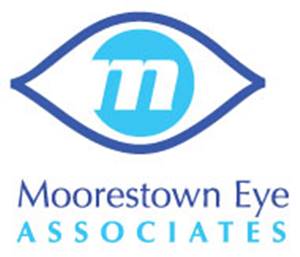 As a caring parent, ensuring your child's health is a top priority, and vision is no exception. That's why it's essential to understand how Myopia or nearsightedness can affect your child's eyesight. If left untreated, Myopia can lead to severe ocular diseases.
As a caring parent, ensuring your child's health is a top priority, and vision is no exception. That's why it's essential to understand how Myopia or nearsightedness can affect your child's eyesight. If left untreated, Myopia can lead to severe ocular diseases.
Let’s explore how Myopia management with MiSight contact lenses, offered here at Moorestown Eye Associates, in Moorestown, can help treat and prevent Myopia progression, along with the importance of timely detection through regular eye exams.
What is Myopia?
Myopia, commonly known as nearsightedness, is a visual condition that affects children by causing distant objects to appear blurry and out of focus. This occurs due to the elongation of the eyeball or the increased curvature of the eye's lens, which causes light to focus in front of the retina instead of directly on it.
The Importance of Early Treatment
Untreated myopia can lead to severe ocular diseases like glaucoma, retinal detachment, and myopic macular degeneration later in life. It can also result in increased dependence on corrective lenses. Taking early action is crucial in preventing further damage and improving treatment outcomes for children with myopia.
Risks Associated with Untreated Myopia
Development of Eye Diseases:
Untreated progressive myopia increases the risk of severe ocular diseases that might lead to vision loss. One such condition is myopic macular degeneration, impairing detailed vision. Retinal detachment is another complication that can cause vision impairment or blindness. High myopia raises the risk of glaucoma, damaging the optic nerve and causing permanent vision loss if not managed promptly.
Increased Risk of Blindness:
Neglecting myopia management raises the long-term risk of blindness. Severe myopia progression heightens the likelihood of vision impairment and blindness. Proactive measures are crucial to control myopia and reduce irreversible vision loss risk.
Risk of Detached Retina:
Advanced myopia poses a risk of complications, including detached retina. Prompt treatment is vital to prevent significant vision impairment or complete blindness. Regular eye examinations and appropriate myopia management reduce detached retina risk and preserve long-term visual health.
What is MiSight?
MiSight is a soft disposable contact lens developed by CooperVision specifically designed to slow down myopia progression in children between the ages of 8 to 12 years old. These lenses are designed for daily wear and come in convenient single-use packs.
How MiSight Works
MiSight contact lenses feature two different prescription strengths in one lens. The central part of the lens is corrected to focus light on the retina, while the unique concentric design manipulates peripheral focus to slow down the progression of myopia in children.
Benefits of Using MiSight in Myopia Management
Numerous studies have demonstrated the effectiveness of MiSight lenses in slowing myopia progression. By slowing down the development of myopia, these lenses decrease the risk of complications like retinal detachment, myopic macular degeneration, and glaucoma later in life. Additionally, MiSight's daily wear and disposable design make them a safe and practical option for children.
The Importance of Regular Eye Exams
Detecting Myopia during Routine Eye Exams
Regular eye exams are vital for the early detection of myopia, enabling prompt treatment and minimizing the risk of progression.
Identifying and Monitoring Myopia
Early identification of myopia allows eye care professionals to create suitable intervention strategies to prevent further development of the condition.
Benefits of Early Detection
Early detection and management of myopia yield optimal outcomes and reduce the likelihood of future vision complications.
Other Ways to Manage Myopia
Lifestyle Changes
Encouraging children to spend more time outdoors has been associated with a slower progression of myopia.
Eye Exercises
Engaging in eye exercises can improve visual skills, processing speed, and attention, which may help reduce the progression of myopia.
Corrective Lenses
Corrective lenses, such as contact lenses and glasses, are effective methods of managing myopia symptoms and improving vision.

Click here to see which Saturdays we are open.